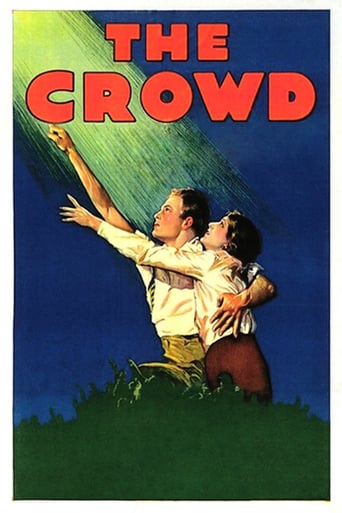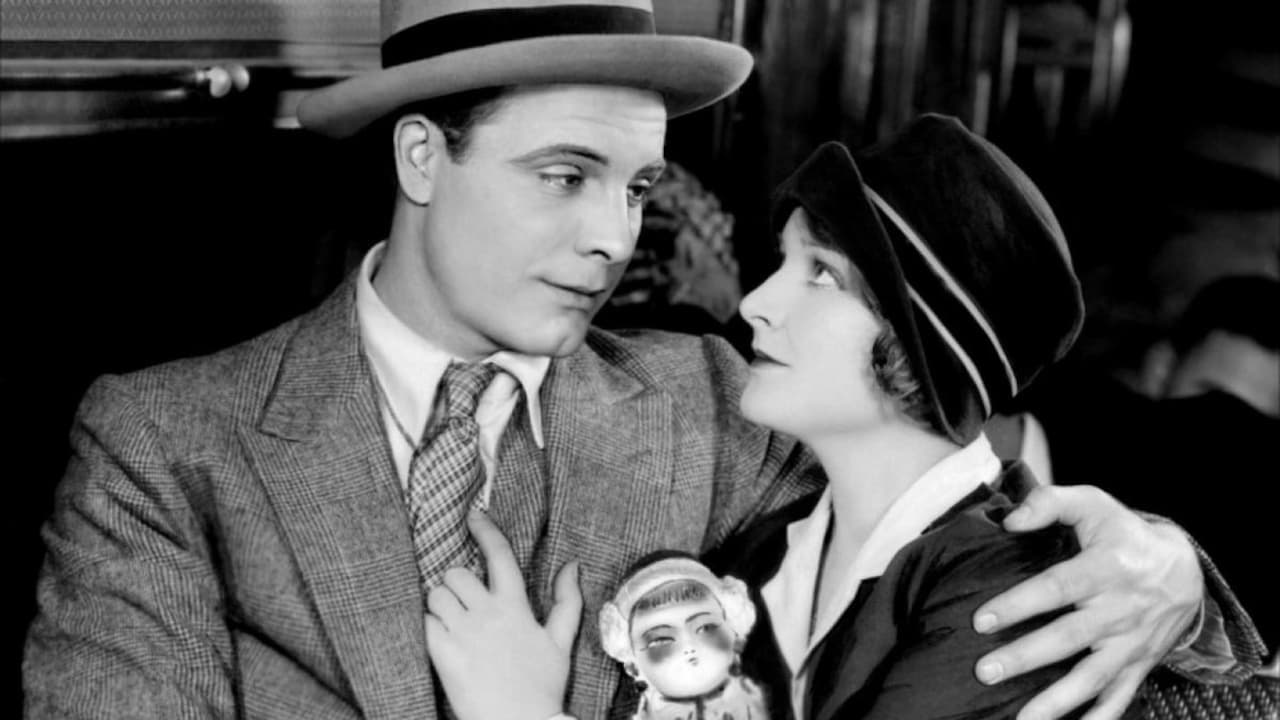Antonius Block
'The Crowd' is strong in its early scenes of the life of a young man, played by James Murray. He goes to New York to make it big, and is immediately swallowed up into the masses, a cog in the mighty machine of an office, and the shots director King Vidor uses to show this are fantastic. He then meets a young woman (Eleanor Boardman), and there are some lovely scenes of them courting at an amusement park, and then at Niagara Falls on their honeymoon. From there the film almost gets too realistic as it trundles through various phases of life. We see him in awkward family gatherings, tying one on with his friend (Bert Roach) and a couple of party girls, having marital arguments, becoming a father, giving his kids horsey rides, hitting incredible high points but also enduring a deep tragedy, struggling through difficult times, and getting depressed. In many of those, there are so many little moments that heighten the realism; how silly and petty the arguments are, needing to help his kids relieve themselves at the beach, and on and on. Most people will relate to at least some of the parts of the film, and it shows just how similar lives in the past were to our own, even though its trappings and technology were of course different. Vidor essentially shows us the universality of experience. He also shows us that ultimately love and sticking together are the way to persevere through adversity. I don't see the film as one of the greatest silent films of all time as some do, but there's a depth and quality to the film that certainly make it a good one, and worth seeing.
Steffi_P
It's often said of silent pictures that they reached the pinnacle of their expression at the very moment that they were made obsolete. This is something that can never be proved, since no-one can know where the medium would have gone had talkies not come along in the late 1920s. It is true however that this period saw a number of cinematically perfect motion pictures, which can be regarded today as classics in the same manner that great novels or musical symphonies can. The Crowd, a deceptively simple tale, is among the most exceptionally lovely.The story, by director King Vidor and John Weaver, is a poignant tale of one man's eventual acceptance that, while he may never be a great man in the conventional sense, he is a hero to his family. The Crowd is not however one of those great captivating works of screen writing that would be excellent however it was done. Almost all of its appeal comes through the way Vidor has realised it. This man is just so good at coming up with the simplest ways of expressing a familiar concept. At the first scene of the protagonist's birth the moment is carried by a long shot of the proud father – keying us in not to the event itself but to the emotions involved. Throughout, Vidor is framing incidents against the backdrop of the big city, the huge buildings and masses of people. Towards the end there is even a shot of John Sims making his way through a massive cemetery. Despite the small scope of the story this large canvas gives the movie an almost epic feel, and grants the little story its sense of far-reaching importance.Vidor was of course a master of cinematic technique, but unlike some of the very showy directors of this time (such as F.W. Murnau) he seeks to wind his camera trickery into the physical logic of the action. So for example one of the most obtrusive angles is the upward tilt on the trolleybus steps, but this is from John's point-of-view, so it makes sense. A little after this we get the most obtrusive camera movement, as we swoop down the slide, but again this is following the characters. The attention-grabbing nature of these shots is important because it gives the right tone to the romantic Coney Island visit, but Vidor does it in such a way that we are focused on the people in the story and not the technical wizardry behind it. Of course, there is the one very famous shot travelling shot going up the skyscraper, but this works because it is a linking piece of narrative. Every time the characters are on the screen, it is all about them.Vidor deliberately cast two small time players in the lead roles. While James Murray and Eleanor Boardman are not exactly exceptional actors, they work well here because of their capacity for realism and their inherent likability, and their lack of star quality actually enhances their ordinariness. Murray for example is a funny guy, but he is not funny like a comedian, he's funny in the way that someone one knows and works with might be a bit of a joker. Boardman had more experience that Murray and is somewhat more the professional actress, but it is her tenderness and restraint which shines through here, and her rapport with Murray appears strong.So, The Crowd is an immaculate piece of silent storytelling. However this does not necessarily make it the relic of a now-extinct art form. Motion pictures did not change so much when the talkies arrived, and the techniques that King Vidor perfected here would stand him in good stead for some very fine movies well into the sound era. Cinema is all about making images speak to us in universal tongues. Sound would add another layer to the mix, but with images as powerful this it would detract nothing.
ackstasis
The most remarkable thing about 'The Crowd (1928)' is that is manages to cover so much emotional ground. John (James Murray) is a young man who knew from an early age that he would become somebody special, that he would stand out from the crowd. At age 21, he travels to New York, the towering metropolis introduced via a montage of impressive high- angled shots that resemble Robert Florey's 'Skyscraper Symphony (1929).' John joins the accounting sector of a large insurance firm, and studiously assures himself that he need only work his way up. Years pass. John marries, has two children. It takes him five years to realise that he has become what he swore never to become: a member of The Crowd.Vidor's message is a double-edged sword. Early in the film, The Crowd is something to be loathed: the camera, in a virtuoso display of technical brilliance, swoops down upon a seemingly-endless room of seated accountants, each man turning pages in mechanical unison. (Billy Wilder later paid homage to this scene in 'The Apartment (1960)'). But when John finally determines to break free from The Crowd, his world falls apart around him – he can't maintain a job, his wife threatens to leave him, he loses his dignity. The film's ending is intriguing in its ambiguity: John is absorbed into the crowds of a laughing theatre audience.Is it a happy ending, an embracing of conformity? Is it ironic, an acknowledgment of mass delusion? Is Vidor integrating his character into the cinema audience? In 'The Bicycle Thief (1948),' a similar disappearance into the crowd is viewed as tragic, but here I'm not so sure. F.W. Murnau's 'The Last Laugh (1924)' told a similar tale, depicting the bleak prospects of a working-class doorman, played by Emil Jannings. UFA studio thwarted that film by enforcing a ludicrous happy ending that Murnau included only with a snide introductory title card. M-G-M also toyed with a happy ending to 'The Crowd,' but fortunately Vidor's version ultimately won out, a conclusion genuinely unsettling in its uncertainty, and sure to inspire discussion.
George Wright
The Crowd, directed by King Vidor, is a real gem of a movie that kept me glued to the TV from start to finish, feeling joy and sorrow, as it covered the life of one American male from birth to middle age. The characters are universal and the movie gives as much pleasure now as it must have in 1928. I especially liked Eleanor Boardman as Johnny's devoted wife. Many of the events mirror the lives of people, not only then but now. I also found great appeal in how children are often key in life's pivotal moments. After viewing the movie, I remembered another silent movie,The Gold Rush with Charlie Chaplin, and how much I liked it. Maybe it's the nature of silent movies with the captioning that keeps us so involved. In any case, this is a great movie. If you have a chance,see it!


 AD
AD




